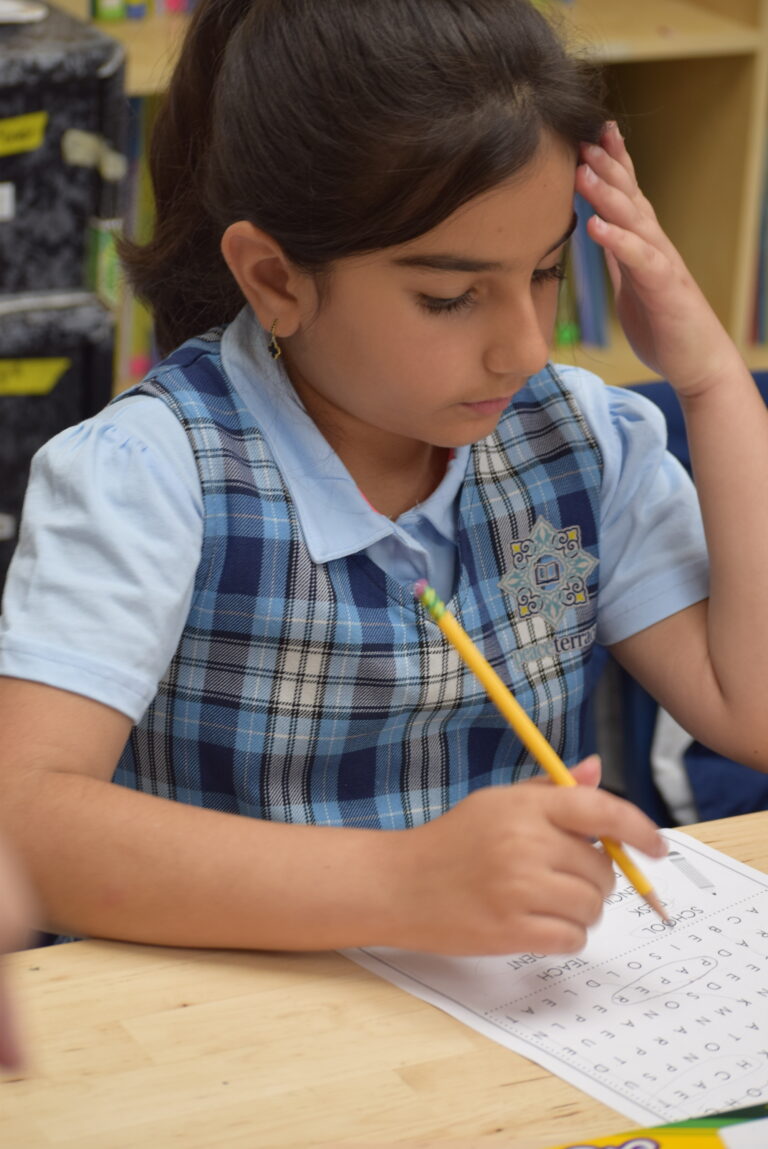Academics
Pursuit of Truth
“Language is the crowning achievement of human beings, and that is something Muslims have always known and revered. We are a literate people whose miracle is a Book from an unlettered man, peace and blessings be upon him, who was the most articulate and eloquent human being who ever lived. We honor our Prophet, peace and blessings be upon him, in honoring language that he loved so much and used so well.”
Shaykh Hamza Yusuf
In the middle of the Arabian desert, our beloved Prophet’s, peace and blessings upon him, call to the worship of one God, was destined to blossom into the intellectual heritage of Islam with some of the finest institutions, scholars, and academic works that the world has ever seen.
Classical education has a deep and profound legacy, rooted in the pursuit of knowledge as a sacred duty in Islam. While the works of ancient philosophers such as Plato and Aristotle laid foundational ideas, it was during the Golden Age of Islam that classical education truly flourished. Guided by the Quranic emphasis on learning and reflection, scholars like Imam Ghazali, Ibn Sina, Ibn Rushd, and many others advanced knowledge in diverse fields, integrating faith with reason. Their contributions not only enriched the Islamic world but also served as a bridge through which the West rediscovered its own intellectual heritage. This Islamic intellectual tradition remains a testament to the importance of seeking knowledge as an act of worship and service to humanity.
In many places around the world, classical education is now enjoying a renewal, precisely because it is adaptive and equips students with the skills and knowledge to go forward and live interesting, thoughtful, and productive lives.
At Peace Terrace Academy we are delighted to be a part of the rich legacy of both the Islamic and Western classical traditions.
The Trivium & Classical Education
Classical education rests on the concept of the Trivium—grammar, logic, and rhetoric—not as subjects, although these subjects are studied, but as the structure of every subject and discipline.
Every subject we attempt to learn, at any time in our lives, has its grammar, logic, and rhetoric stages, from reading and math to gardening and law, to music and auto mechanics.

Early Childhood Center
Pre-School - Kindergarten
At this stage, typically between ages 3 – 6 years old, children naturally gravitate towards imitation and absorption of knowledge through play, memorization, and mimicry.
Content
Want to “discover” things for the first time and explore their surroundings. Their surroundings need to be imaginative and lead them to new discoveries.
Methods
- Songs, chants, jingles
- Storytelling
- Embodied learning
- Curiosity & Wonder
- Memorization
- Repetition
Grammar
1st - 4th Grade
Grammar is the foundation of a subject—the collection of its parts and the mechanics of how they work. Ages 6 – 10 years old.
Content
Want to know “what” things are and are able to memorize large amounts of information.
Methods
- Songs, chants, jingles
- Storytelling
- Embodied learning
- Curiosity & Wonder
- Memorization
- Repetition
- Didactic Instruction
- Coaching
Logic
5th - 8th Grade
Logic is the organization of these parts into a whole and an understanding of the relationships among the parts. Ages 11 – 14 years old.
Content
Want to know “why” things are the way they are and want to debate and argue about them.
Methods
- Educational Virtues: Wisdom, Eloquence, Temperance, Fortitude, & Prudence
- Storytelling
- Public Speaking
- Debate
- Seminar
- Lecture
- Coaching
Classical Education
The three dimensions of knowledge are practiced as follows at Peace Terrace Academy:
- Qur’anic Sciences
- Islamic Sciences
- Tarbiya & Virtue Education
- Language- English & Arabic
- History & Geography
- The Arts
- Logic
- Athletics
- Science
- Mathematics
- Technology